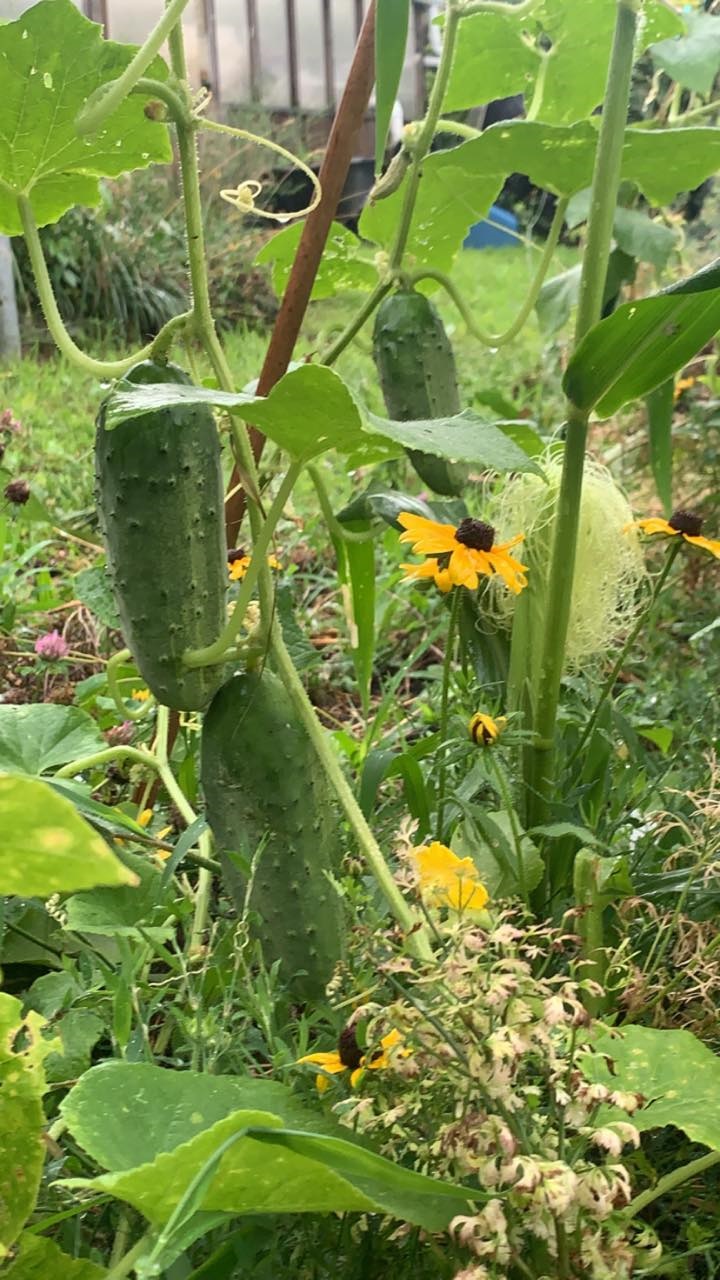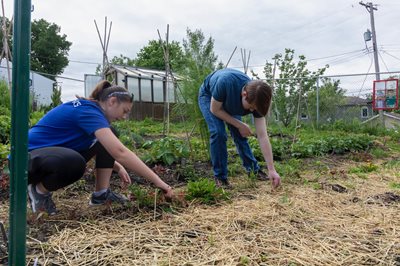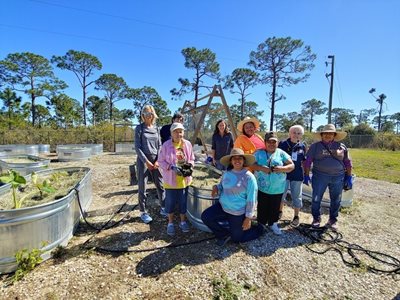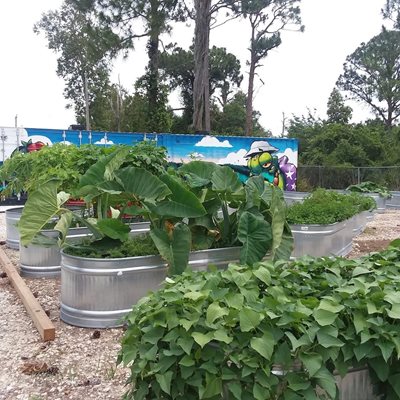âThe cucumbers are ready, dangling on the vines at Splitlog Farm and Orchard, an urban farm that is a partnership between Community Housing of Wyandotte County (CHWC) and KC Healthy Kids. On raised beds, the property produces the cucumbers, tomatoes, strawberries, cherries and more. An apiary is also on site.

CHWC saw the chance to turn the property into a space that was both beautiful and engaging. Plus, it was a way to get fresh produce into a neighborhood that was something of a food desert.
"Gardening is a great way to engage kids and an effective way to engage parents as you're building community, particularly when there are language barriers," Crawford says. The neighborhood includes individuals who speak Spanish, Nepali and Burmese. "Food and farming brings them all together."
August is National Community Garden and Urban Farming Month, and projects like Splitlog show communities the possibilities. In fact, the original intent was to use the property as an engagement and education tool. The farm does that while bringing fresh produce to the neighborhood.
Last year, during the COVID-19 pandemic, KC Healthy Kids hired a full-time worker to help with the farm, as the usual volunteers needed to keep more of a distance. They grew 1,700 pounds of vegetables and distributed them to 60 families, along with milk and cheese through a USDA program. This year, the volunteers are back, and the farm is in full swing.
"Kids and their communities need a strong local food system," explains Heather Gibbons, creative
 director of KC Healthy Kids. "Over the past two years, Splitlog staff have moved $41,000 worth of food from local farms to families in the metro area." The food was grown at the farm or purchased from area farmers. Families picked up free farm shares at Splitlog or at participating early care centers in Kansas and Missouri.
director of KC Healthy Kids. "Over the past two years, Splitlog staff have moved $41,000 worth of food from local farms to families in the metro area." The food was grown at the farm or purchased from area farmers. Families picked up free farm shares at Splitlog or at participating early care centers in Kansas and Missouri.Crawford's goal is to replicate the program. Plans include starting a community garden at a 50-unit, mixed-income development. The residents' association will run Boulevard Loft Gardens, which will be near another elementary school, again providing fresh, healthy produce in a neighborhood where it's scarce. "We'll also have a commercial kitchen, where we can have canning classes and farm-to-table dinners," Crawford says. "I think it will be a completely new way to engage our community with food."
A community garden in Florida
Rural Neighborhoods Inc. in Florida City, Florida, has a community garden that began just before the
 pandemic at the edge of Sanders Apartments. In 28 raised beds, housed in metal containers, residents have planted potatoes, cilantro, medicinal herbs, papayas and beans that are more frequently found in Haiti or the countries that make up Latin America.
pandemic at the edge of Sanders Apartments. In 28 raised beds, housed in metal containers, residents have planted potatoes, cilantro, medicinal herbs, papayas and beans that are more frequently found in Haiti or the countries that make up Latin America. Maura Diaz can frequently be spotted in the garden, weeding, watering and planting. She also keeps pots of flowers near her own apartment. She likes to grow fresh fruit, she says through an interpreter. She knows it doesn't have chemicals, and that it's a cost savings for her family. Diaz, who sometimes gardens with her son and husband, is also active in the community sewing group. She's a resident leader, which Dottie Cook, who is with the revitalization team at Rural Neighborhoods, believes is a critical component of community gardens and other projects.
 "You have to have a couple of resident leaders who are committed to it," Cook says. "That's what really gets it off the ground." Support from other individuals, such as gardeners from Mission Peniel Gardens, who helped provide starter plants, and the extension service, is also key.
"You have to have a couple of resident leaders who are committed to it," Cook says. "That's what really gets it off the ground." Support from other individuals, such as gardeners from Mission Peniel Gardens, who helped provide starter plants, and the extension service, is also key.The NeighborWorks nonprofit began the garden after a health assessment showed concerning indicators, including 27% who reported diabetes or pre-diabetes, and 34.6% who reported weight issues. A majority reported only "fair" eating habits. "We thought a garden would be a good way to introduce healthy foods into their diet," Cook says. "The families really appreciate it."
The community garden grows community along with fruits and vegetables. Whenever Cook walks by the property, she sees families talking. "When people are interested in plants, it builds a bond," she says. "They'll share, ‘In my country, we do this or that.' It makes a nice tool to create communication and engagement among people."
Further viewing: A community garden was a centerpiece at this year's Dorothy Richardson Awards.
https://www.neighborworks.org/community/health

